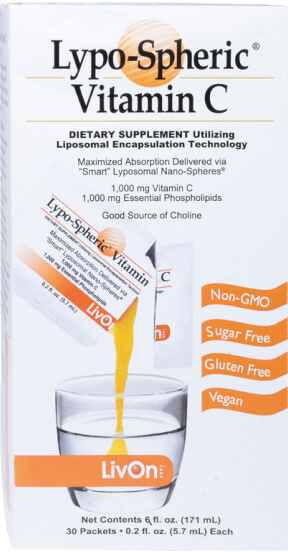[ad_1]
As we’ve gotten older, many of us can no longer drink wine or other alcoholic beverages without suffering consequences of sleeplessness, headaches, hangovers, and depressed mood. It’s not a concern specific to women, but we wonder if our tolerance is affected by changing hormones as well as by age. There are likely to be multiple reasons why women tend to drink less than men and why the amount we drink may go down over the years. And there are multiple ways that we can be kind to our changing bodies, such as supplying nutrients to support liver detox and choosing nonalcoholic options.
RESEARCH
Real-life data are hard to collect, and research on this subject is sparse. Should we take comfort from one survey that concluded that hangover severity does not get worse with age? And that as far as suffering hangovers, aging affects women and men similarly?
Sex hormones affect how we feel after drinking or using drugs. During the part of our monthly cycle when sex hormones are highest, we may experience more rewarding feelings from stimulant drugs. After menopause, when sex hormones—estrogen and progesterone—are low, it could be that alcohol doesn’t make us feel as good as it used to, and the negative effects of alcohol start to outweigh the rewarding feelings.
If our enjoyment of alcohol does change with menopause, is this because of estrogen and might estrogen therapy be helpful? This theory is backed by preclinical research: After menopause, animals don’t want to drink as much alcohol as they did before menopause, and giving them estrogen makes them want to drink more. On the other hand, the menopausal transition can be a time of increased stress and mood swings that make a glass of wine or two seem very desirable. There’s a lot going on in our forties and fifties, and scientists have yet to sort this all out.
REAL-LIFE INSIGHT
For some of us, it seems obvious when our tolerance to alcohol changes; for others, the change may be more gradual and subtle. If it’s been standard to drink a couple of cocktails nightly for a long time and sleep problems or cognitive issues are relatively recent, the two may not seem to be correlated. But it may be helpful to ask yourself how you feel and, even better, to note how you feel after an alcohol-free week.
As a professional in the wine industry, Cathy Huyghe is acutely aware of how alcohol uniquely affects women as they go through childbearing years and beyond. Huyghe writes about wine, the alcoholic beverage industry, and wellness for Forbes. She also contributes to A Balanced Glass, a forum dedicated to supporting the health and wellness of wine professionals around the world. “I bring mindfulness to the table, an intention to be more aware, to mindfully consume,” she says.
Huyghe isn’t sure if perimenopause is making her more sensitive to alcohol or if it is heightening her awareness of her body and making her more mindful of the food and drink she’s putting in her body. And mindful of the evidence that drinking any amount of alcohol increases the risk of breast cancer and other cancers. She sees that men in the industry are being more mindful about their consumption. Meanwhile, nonalcoholic wines and beers are growing in popularity and importance in the beverage trade.
INSIDE THE BODY
It’s not entirely clear how alcohol exerts its desired effects, let alone the undesirable effects such as headache, irritability, upset stomach, and waking during the night. The body sees alcohol as toxic and tries to get rid of it as quickly as possible. An enzyme called alcohol dehydrogenase converts alcohol to acetaldehyde—which can cause sweating, flushing, and nausea—and another enzyme deals with acetaldehyde. For some people, drinking regularly builds tolerance by inducing these enzymes, but people vary greatly in how quickly they metabolize (get rid of) alcohol and of acetaldehyde.
Alcohol causes inflammation and oxidative stress. After drinking, levels of antioxidants in the body go down and levels of free radicals and inflammatory mediators go up. Inflammation appears to contribute to hangover symptoms, which will make sense to anyone who relies on a post-drink OTC anti-inflammatory.
Oxidative damage from alcohol can affect brain chemistry and kill neurons, both while you are drinking and during withdrawal. Estrogen can protect neurons from oxidative stress, inflammation, and damage, so it’s possible that the drop in estrogen levels starting in perimenopause makes us more susceptible to ethanol’s toxic effects.
SUFFERING THE CONSEQUENCES
Whether you call it a hangover or alcohol withdrawal, recovery from alcohol is hard on the body. Neurotransmitter pathways that have been ramped up or down contribute to headaches and other symptoms before they come back into balance. For example, alcohol impairs the signaling of the neurotransmitter GABA and reduces its calming effects. It takes time to come back into balance and to regain normal levels of soothing GABA signaling.
After initially making you feel sleepy, alcohol can cause you to wake up at night and deprive you of deep, restful sleep, causing irritability and fatigue. It screws up circadian rhythms in body temperature and hormones, including melatonin and cortisol, inducing a kind of jet lag.
Alcohol directly irritates the stomach lining and causes inflammation. It can increase stomach acid production, which is also irritating. Alcohol relaxes throat muscles and promotes snoring. (You may be interested in this device that is designed to help keep nasal aid passages open at night.)
In addition to alcohol, there are other bioactive chemicals in alcoholic drinks that are formed during fermentation. They tend to be highest in red wine and whiskey and lowest in clear distilled spirits. Some of these chemicals are desirable, like polyphenol antioxidants, and some are not. Histamine and tyramine may cause headaches and flushing. If you find that an OTC antihistamine is helpful, maybe components other than alcohol are the problem.
SUPPORTING THE BODY
Cofactors for Alcohol Metabolism
-
We haven’t yet figured out a way to reliably speed up alcohol metabolism or to prevent a hangover. But we can make sure that we’re supporting our bodies with ample zinc and niacin nutrition.
Metabolizing a single molecule of alcohol requires two molecules of NAD, which the body makes from the B vitamin niacin or from the supplement nicotinamide riboside. And zinc is a crucial part of the enzyme that metabolizes alcohol. goop’s multivitamin regimen Why Am I So Effing Tired? has plenty of niacin and zinc. It also has herbs to support the stressed body and brain: ashwagandha, bacopa, and holy basil. We recommend taking these convenient packets—manufactured according to current good manufacturing practices (CGMP)—every day so that your body is well-stocked with vitamins, minerals, and much more. (Go here for more about replenishing NAD.)*
-
 goop Wellness
goop Wellness
WHY AM I SO EFFING TIRED?
goop, $90/$75 with subscriptionSHOP NOW
-
Digestive Comfort
Oops I Did It Again is a blend of herbs selected based on ancient wisdom and modern science. It is based on a traditional Chinese formula, Po Chai pills, used during times of occasional digestive discomfort.*
WTHN
OOPS I DID IT AGAIN
goop, $45SHOP NOW
-
Head and Neck
Tension and stress may end up being held in your head and neck. Magnesium, white willow bark, boswellia, Chinese skullcap, and feverfew extracts can help support muscle relaxation and comfort.*
Hilma
TENSION RELIEF
goop, $17SHOP NOW
Antioxidant Reserves
Alcohol depletes antioxidants and promotes free radical formation. Eating plenty of fruits and vegetables is the best way to stock up on antioxidants. goop’s stellar daily detox superpowder boasts the antioxidants vitamin C and resveratrol, and it boosts liver detox pathways with the star ingredient, milk thistle extract.*
Low Blood Sugar
Alcohol causes low blood sugar, which in turn can cause faintness, irritability, low energy, and questionable decision-making. Eat something before accepting that first drink. Food in your stomach slows alcohol absorption, protects the stomach, and helps prevent low blood sugar.
Hydration and Electrolyte Balance
-
You know that drinking alcohol is dehydrating because of increased urination, but did you know that you’re losing electrolytes along with that water? The body can’t excrete pure water. Sweating and vomiting make things even worse. Drink water of course, but also make up for lost electrolytes.
-
 Cure Hydration
Cure Hydration
RUBY RIOT GRAPEFRUIT DAILY ELECTROLYTE MIX
goop, $25SHOP NOW
DOES THE TRICK INSTEAD
-
Since there are no cures for hangover that have been verified in high-quality studies, the obvious solution is to find enjoyable alcohol alternatives. High Rhode is a nonalcoholic spirit containing energizing nootropics, herbal extracts, and vitamins, including some mentioned in this story (GABA and niacin). Mix it with soda water or try the Cherry Bomb, a mocktail created by chef Seamus Mullen just for High Rhode. And go here for more nonalcoholic cocktail recipes.
-
 Kin Euphorics
Kin Euphorics
HIGH RHODE
goop, $39SHOP NOW
-
WHAT’S YOUR BIOLOGICAL AGE?
How does your chronological age compare to your biological age? Have the lifestyle changes you’ve implemented helped to keep you functioning optimally? If you’re curious about this, you may be interested in Elysium Health’s test kit. Mail in a saliva sample, and Elysium’s scientists will do a sophisticated analysis of your DNA—actually of epigenetic markers—to obtain a measure of biological age. Follow the lifestyle recommendations to see if you can lower your numbers.
-
 Elysium Health
Elysium Health
INDEX
goop, $499SHOP NOW
This article is for informational purposes only. It is not, nor is it intended to be, a substitute for professional medical advice, diagnosis, or treatment and should never be relied upon for specific medical advice. To the extent that this article features the advice of physicians or medical practitioners, the views expressed are the views of the cited expert and do not necessarily represent the views of goop.
*These statements have not been evaluated by the Food and Drug Administration. These products are not intended to diagnose, treat, cure, or prevent any diseas
[ad_2]
Source link





